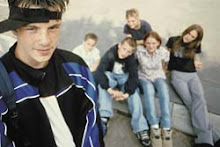
Love Our Children USA is an organization that educates you on protecting our children. I was privileged to be introduced to their Cyberbullying Spokesperson while on The Rachael Ray Show. This non-profit organization continually helps many families by not only reaching out to them, but keeping parents up to date on how to keep your children safe and keeping you informed of today’s adolescents and these new activities such as texting and sexting. Well, semi-new activities - to many of us, texting is still foreign, however these kids have their fingers going a mile a minute.
THE ISSUE:Every year over 3 million children are victims of violence and almost 1.8million are abducted. Nearly 600,000 children live in foster care. Every day1 out of 7 kids and teens are approached online by predators, 1 out of 4kids are bullied and 42% of kids are cyberbullied.
THE SOLUTION: PREVENTION! Getting to the root of the cause through education and changing behaviorsand attitudes. Loving and nurturing children. Stopping Violence BEFORE itstarts — creating happy and healthy children … Keeping Children Safe
CELL PHONE AND TEXT MESSAGING SAFTEY
Source: LoveOurChildrenUSA
Are You a Potential Victim of Cell Phone Danger?
Who is text messaging you? If your friends, family and parents are the only ones sending you text messages — than that’s cool! They should be the only people who are texting you!
To be safe, you should not give anyone but your close friends and family your cell number. Do not give out personal identifiable information, such as real full name, addresses, phone numbers, photos, descriptive information from which this information could easily be found (like a picture of you in front of a recognizable place, or a photo referring to your sports team by name or by wearing something with identifying information in a photo.)
To be safe, you should not give anyone but your close friends and family your cell number. Do not give out personal identifiable information, such as real full name, addresses, phone numbers, photos, descriptive information from which this information could easily be found (like a picture of you in front of a recognizable place, or a photo referring to your sports team by name or by wearing something with identifying information in a photo.)
If you text message people other than your family and close friends, you could be texting people who can cause you harm.
And, it’s not uncommon for bullies to use cell phones to harass other kids and, tragically, it’s not unheard of for kids to be contacted on their cell phone by adult predators.
You wouldn’t text a stranger and give them all of your information and let them know what school you go to — would you?
By using common sense and maintaining your privacy when using your cell phone and text messaging you stay safe from online predators and cyber bullies.
What To Do If Strangers Or Bullies Text You?
REPORT IT immediately! To your parents, a trusted teacher and the police!
No one has the right to bully you! And no stranger has the right to text you!
For more information click to read:
Through The Eyes Of A Victim Bullying: What Have I Ever Done To You Stop Bullying CyberbullyingOnline Safety For Kids and TeensCell Phone and Text Messaging Safety








